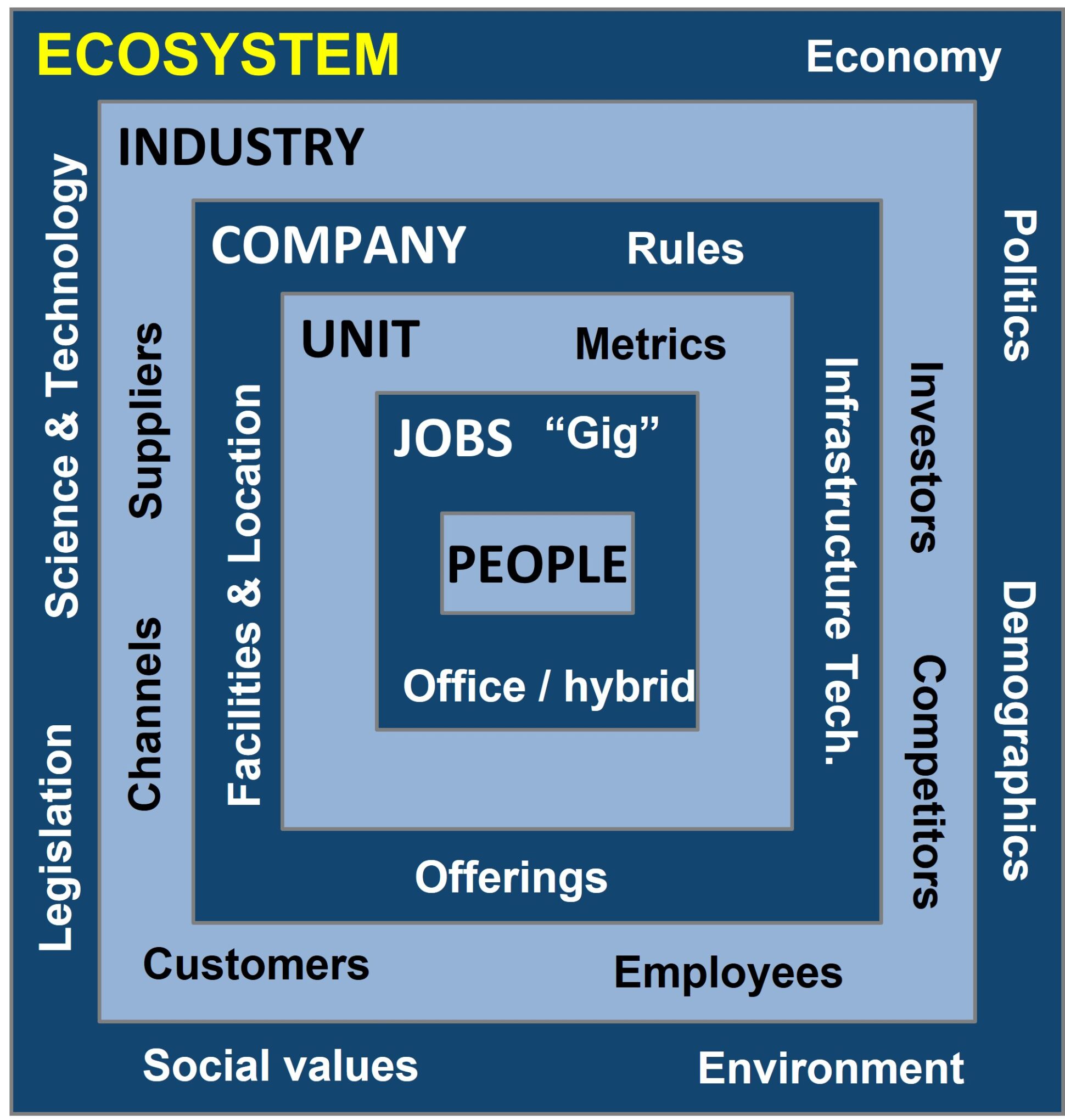Are you relevant?
Think in a set of nested boxes.
These boxes relate to the system in which you work. It’s you inside your job, inside your unit, inside your company, inside your industry, inside your business ecosystem.
Now, what about the following:
• What are your career prospects if you’re a FORTRAN programmer?
• Do large companies still have typing pools?
• Should you look for a job at Blockbuster or Sears?
• When do you think the typewriter industry will experience a renaissance?
They all relate to the need to stay relevant in a dynamic world. .
Being relevant
Being relevant means being connected, responsive, and valuable in a specific context. It involves understanding and addressing the needs, challenges, and interests found in the present moment and staying in tune with changes and developments in order to remain impactful and valuable.
Staying aware
You need to think about the full set of boxes in which you work because, for the most part, change tends to come from the bigger boxes toward the smaller boxes. Sometimes this change is fast. Sometimes it’s slow.
Some examples:
- People (e.g., customers) age a day at a time. Pharmacy companies such as Walgreens and CVS are “living the good times” of an aging Boomer population. But will they appeal to the Gen-Z population who haven’t hit the “prescription” stage of life.
- The business press is filled with stories about the growth of ChatGPT and other forms of artificial intelligence. Some (many?) jobs will change. Maybe yours? Will higher level thinking skills be needed and did your education really train you to think that way? Are you learning fast enough?
- We are still trying to find the right mix of remote / in-office / hybrid work. Is the commercial real estate industry responding fast enough?
- Is the customer engagement and experience model of Amazon applicable for the next ten years?
- Will business models survive our current era of political discord? Will efforts to think reasonably about diversity and sustainability and ethics succumb to political grandstanding?
Good thinking
We are in the process of developing a hybrid course focused on understanding the set of “boxes” and their boundary conditions. In the meantime, here are a few of the characteristics of good thinking.
- Clarity: Good thinking involves clear and precise understanding of concepts, ideas, and problems. (E.g., can you define “woke?”)
- Objectivity: Good thinking involves evaluating information and ideas without bias or preconceptions. (E.g., do you get all your information from CNN or Fox?)
- Rationality: Good thinking involves the use of logic, evidence, and reasoning to evaluate and develop ideas. (E.g., how much evidence supports some of your stronger opinions?)
- Relevance: Good thinking involves considering the context and applying ideas and solutions that are appropriate and effective. Do you think “big enough?”
- Ethical and moral considerations: Good thinking involves considering the ethical and moral implications of ideas and solutions.
Need your help
Please consider the bigger boxes model I just used. Might it apply to your situation and what would you want to know about using the model to improve your thinking about business?
Thanks,
Bill
Never miss out!
Get an email update every time I publish new content. Be the first to know!

